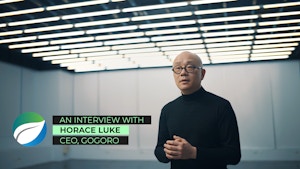#electrification News

Carbon & Climate
Pan Brothers is first Indonesian manufacturing firm to get net zero targets approved by SBTi
The textiles and garments company, which supplies global brands such as Adidas, Uniqlo and The North Face, is only the second Indonesian firm to get its decarbonisation plan rubber-stamped by the Science Based Targets initiative.

Clean energy contributed a record 11.4tn yuan (US$1.6tn) to China’s economy in 2023, accounting for all of the growth in investment and a larger share of economic growth than any other sector.

Along with a major expansion of renewable energy, India is also pushing for big increases in its coal production, casting doubt on its climate commitments.

Energy efficiency has been recognised as a key piece of the net-zero puzzle but faster uptake of existing technologies is needed.
Carbon & Climate
Elections, heat and youth power: Climate tipping points for 2024?
#electrification Opinion

Transport is one of the world's biggest polluters, but on the path to net zero, aviation is reinventing itself, potentially building a new kind of jet age.

Indonesia wants to increase its use of electric vehicles but tax incentives have had a fairly limited impact. The cost of rolling out public charging stations and other supporting infrastructure is a challenge.

Achieving net zero emissions requires compromise but energy justice for all needs to be at the heart of any decision. For all the talk, it's not happening, yet.

The majority of China’s delivery emissions comes from trucking, but widespread electrification of heavy ground transport is still a long way off.
Policy & Finance
Obstacles to decarbonisation in Southeast Asia
Policy & Finance
The world needs a digital lifeline
#electrification Videos

After 20 years without electricity, more than 50 households in Cebu's poorest district have been provided with solar energy, financed by carbon offsets.
#electrification Podcasts

GoTo sustainability head Tanah Sullivan tells the Eco-Business Podcast that regulating net-zero claims would decarbonise Southeast Asia faster. Indonesia's biggest internet firm aims to cut emissions to zero by 2030 — a target critics say is unrealistic.

Exclusive
In this new podcast series 'Climate Tech in Asia', Eco-Business speaks to Gogoro chairman and CEO Horace Luke about the company's recent listing on the Nasdaq and its quest to electrify Asia's ubiquitous two-wheelers and make battery swapping mainstream.
#electrification Press Releases

NEU Battery Materials
NEU Battery Materials concludes oversubscribed US$3.7M seed funding round















